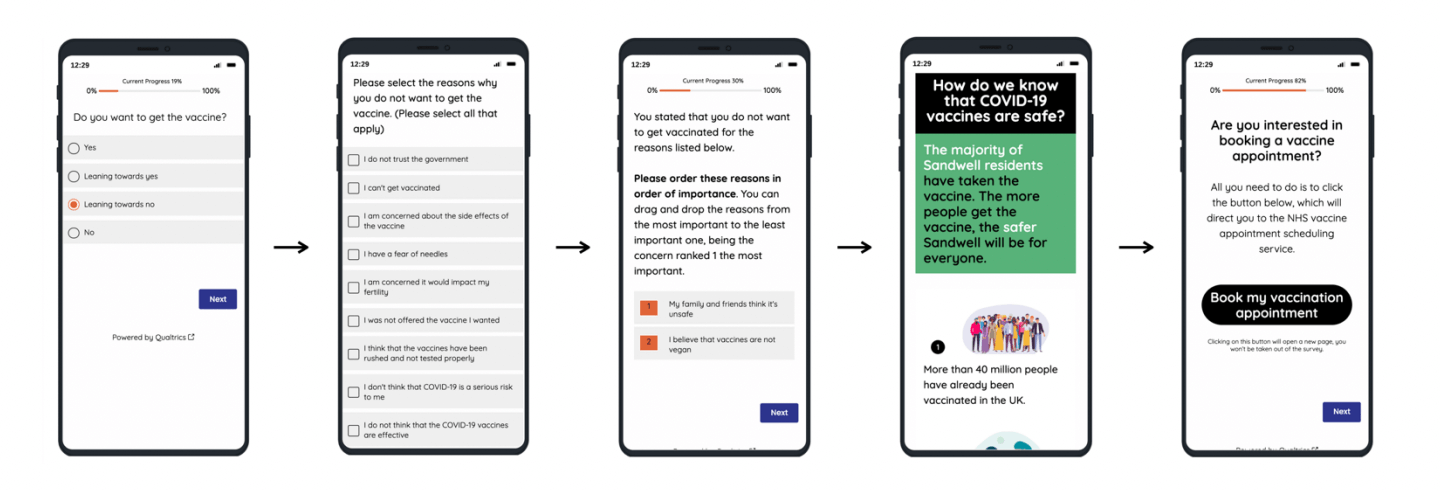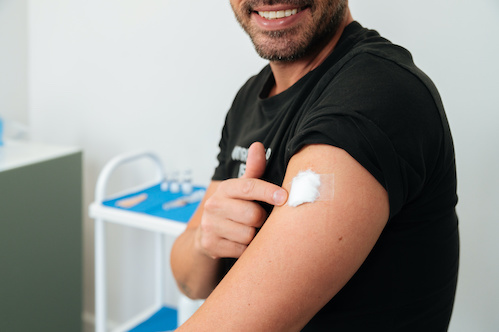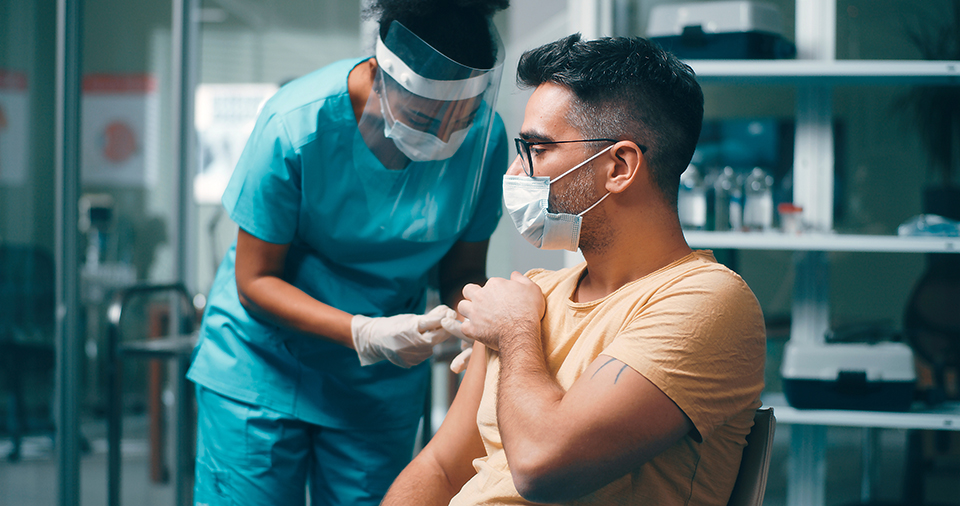Health
Increasing COVID-19 vaccine uptake and promoting vaccine advocacy across workplaces
2022
PARTNERS
Sandwell Metropolitan Borough Council
Share
We applied behavioural insights to encourage COVID-19 vaccine uptake among unvaccinated employees and promote vaccine advocacy among vaccinated employees in Sandwell.
During the COVID-19 pandemic, the irregular vaccine uptake left certain parts of the UK at high risk in terms of the transmission of the virus. This was the case in Sandwell, where businesses were stretched for resources, and yet, despite the information and guidance made available to employees and customers, vaccine uptake remained negligible.
We were commissioned by the Sandwell Metropolitan Borough Council to address the concern of not reaching sufficient vaccination rates amongst businesses’ staff. We began by studying and identifying key barriers to vaccine uptake and exploring different solutions to tackle these barriers. Based on our research, we designed two behavioural interventions.
In the first intervention, we theorised that tailored information increases vaccination intentions amongst individuals; the second intervention was designed under the assumption that vaccine advocacy supports the acceptance and uptake of COVID-19 vaccines. We evaluated both interventions via an online survey.
The perceived lack of proper testing of the COVID-19 vaccines was amongst the main reasons individuals refrained from getting vaccinated.
This study consisted of two randomised controlled trials (RCT) that were administered online. The first trial assessed the main reasons non-vaccinated participants had for not getting the vaccine and their perceptions of coronavirus as predictors of vaccination intent. The primary aim of this trial was to encourage COVID-19 vaccines uptake among unvaccinated employees by providing tailored information to address specific barriers. The aim of the second trial was to promote vaccine advocacy among vaccinated employees. We attempted to achieve this goal by using behavioural messaging to encourage vaccinated employees to become advocates for the vaccine within their social networks. We examined the reasons for getting vaccinated as predictors of vaccine advocacy amongst vaccinated participants.

Unvaccinated participant journey (mobile).
In the first trial, we found that the tailored interventions led to a small increase in participants’ intentions to get the vaccine. However, this must be interpreted with caution as a small sample size meant the results were not statistically significant. Future research could look at ways of testing this intervention with larger numbers of participants.
Nevertheless, survey results from the first trial helped us gain important insights into the main concerns that participants had for not getting the COVID-19 vaccine. Participants reported concerns around the vaccine being rushed, potential side effects, perceived ineffectiveness of the vaccine and perceptions that COVID-19 was not a serious risk to them, as some of the main concerns for not getting the vaccine. We also found that these main concerns are the most strongly associated with an unwillingness to get vaccinated and that most participants had a single main concern regarding vaccination. These findings can help inform the development of targeted communications and public health campaigns that encourage vaccine uptake.Vaccinated participants were already willing to become vaccine advocates.
In the second trial, we found that the main reasons individuals had for getting the vaccine were to protect themselves and to protect others against coronavirus. However, we did not find a significant effect of the behavioural intervention on participants’ intentions to become vaccine advocates. This may be because prior to the intervention, a large share of the participants (80%) were already willing to become advocates. It may therefore be useful to explore ways of translating people’s stated intentions into actual advocacy behaviour in future research.
Finally, we found that making companies part of the decision-making process and engaging them in the experiment and intervention design is a key practice to ensure the success of the project. This practice helped us establish very fruitful relationships with some companies, which in turn eases the path for the implementation of similar trials in the future.
Do you want to learn more about this project?
You can read the project full report or listen to LGA's podcast Nudges for Social Good to hear more about how behavioural science can be applied to Public Health from Chitra Roberts, Behavioural Insights and Marketing Project Manager at Sandwell Council.






























